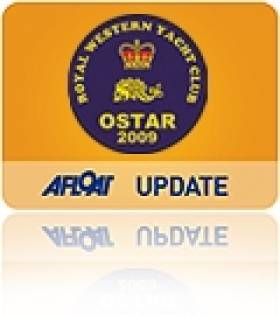Displaying items by tag: OSTAR singlehanded Atlantic race
Could Ireland Bid for Solo Race Across the Atlantic?
#ostar – Could Ireland's location be an advantage to any bid to win the rights to stage the the original solo race across the North Atlantic? The next edition of 'The Transat', the original solo race across the North Atlantic that was born as the OSTAR, will start in its historical time slot in May 2016 from the UK to North America but aftet that race the race start location is open to bidders. Is this a new opportunity for Ireland's former Volvo Ocean Race city, Galway to consider?
Start and finish host cities will be invited in January to put their case forward for hosting this event that is both steeped in history, and that helped create a sector of sailing that is now one of the major forces in the professional sport. Traditionally, The Transat has started from the iconic sea-faring port of Plymouth in the UK and finished in the USA. In New York in the first edition in 1960, then Newport, Rhode Island in the intervening years, before Boston became the arrival port in the last two editions in 2004 and 2008.
In 2009, Ireland's Barry Hurley and Italian sailor Luca Zuccoli had an exciting match-race to the OSTAR finish line in Newport, with Barry hugging the shore line (a trick learned from his years sailing in Cork Harbour) and crossing the line literally just minutes ahead after 21 days at sea. The result put him first over the line in his class, and also first on IRC corrected time.
OC Sport renamed the race 'The Transat' in 2004, and added Artemis as Title Partner in 2008, focusing in that year on the IMOCA 60 Class, the boats that compete in the Vendee Globe in the same year. The 2012 edition was deferred at the request of the Class.
With the next edition of The Transat planned for May 2016 in its traditional pre-Vendee Globe slot, consideration is now also being given to the classes that could be invited to compete.
When OC Sport acquired the rights to the race in 2004, it was determined to serve the needs of the professional end of the sport, whilst the Royal Western Yacht Club continued to run a Corinthian race for non-professional sailors restricted to boats of up to 50 feet. The 2004 edition was open to 50ft monohulls and the IMOCA class (60ft monohulls) and the ORMA class (60ft multihulls). In 2008, with the demise of the ORMA class, entry was restricted to the IMOCA class and the Class 40 only. The decision on classes invited to participate will be taken by December 2014.





























































